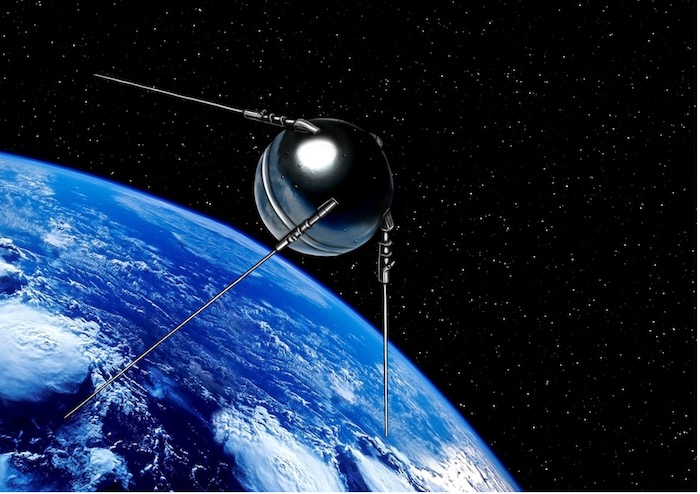
National Internet Day is on Oct. 29 and is a celebration of the first-ever internet transmission. In 1969, Charley Kline, a University of California, Los Angeles student, transmitted the first ever electronic message through ARPANET. In the years that followed, several other internet pioneers made a significant impact on making the internet one of the greatest technological inventions of the century.
To celebrate, we look back on key individuals and their outstanding achievements in creating and progressing the internet.
The Birth of Internet

The Soviet Union launching Sputnik – the first satellite – in 1957 was a catalyst for the invention of the internet. Americans perceived the launch as an indicator of the Soviets’ technological superiority. As a result, the U.S. federal government increased its focus on science and technology. They launched several scientific initiatives, enacted educational reforms, and formed new agencies to develop space-age technologies. One newly formed agency was the Department of Advanced Research Projects Agency (ARPA), which played a pivotal role in the internet’s creation.
In the ‘60s, an MIT computer scientist named J.C.R. Licklider came up with the concept of a global computer network. He was the director at ARPA and shared his innovative idea with his colleagues. Licklider's concept was exceptionally well received, and ARPA decided to build a prototype. As a result, Thomas Merrill, Leonard Kleinrock, and Lawrence G. Roberts designed the world’s first wide-area computer network.
Roberts also published a detailed plan for the ARPAnet, an ARPA-funded computer network that was the precursor of the internet as we know it today. By 1971, ARPAnet could be used to exchange emails between hosts connected to the network, and Raymond Tomlinson became the first person to send an email message over a computer network.
Early Internet Years
ARPAnet used Network Control Protocol (NCP) technology, which had a rigid architecture only suited for it. As a result, there was a need for an open architecture network environment so the computer network could expand.
In 1973, Clinton Cerf and Robert Kahn from Stanford University teamed up to develop the Transmission Control Protocol/Internet Protocol (TCP/IP). This technology successfully delivered data over multiple networks from the server to the client.
In the same year, another pioneer was Robert Metcalfe from Xerox who used a system of cables to transfer data over a network. This system was named Alto Ethernet but later became known as just Ethernet.
Over the next few years, several pioneers helped develop critical components of the internet. These pioneers included: Dennis Ritchie and Ken Thompson, who developed UNIX to allow more than one person to use an operating system simultaneously, and Jim Ellis and Tom Truscott, who used a UNIX-based system to transfer data over phone lines. This technology later became known as a dial-up connection.
Giant Leaps in Internet

Most of the internet's early development was limited to the academic and research environment. However, the concept of a personal computer (PC) was on the rise, which expedited the development of Telenet, the first commercial network for the internet. It allowed email communications across international borders and expanded the internet beyond the academic and research environment.
In 1981, 3Com created Ethernet products for personal computers and computer workstations. This created local area networks (LANs), which are still used in internet systems today. By 1985, the first ever internet domain name, Symbolics.com, got registered by a computer manufacturer.
By the time the ‘90s came around, Tim Berners-Lee and his team at CERN developed uniform resource location (URL) and hypertext markup language (HMTL) to give birth to the first version of the World Wide Web (WWW) and the internet browser. The watershed moment for the internet came in 1995 when Microsoft launched Windows 95, the world's most popular operating system for personal computers.
This flurry of activity in the mid-‘90s ensured the internet would be unstoppable. It also made itself vulnerable to obstacles such as internet virus scares, music and video privacy controversies, the dot com bubble, and government regulations. Despite these challenges, the internet has endured and emerged stronger.
Evolution of Internet
It goes without saying that the internet has continued to evolve. From being used in an academic research environment to becoming a household necessity, the internet has an estimated five billion users around the globe. We’ve seen a meteoric rise in the search engine market which Google dominates. We’ve also witnessed the proliferation of Wi-Fi communication.
Internet speeds originally operated at 56 Kbps, while today's Internet service providers offer speeds in gigabits. All these advancements have been possible using the building blocks developed by internet pioneers. Their genius, unwavering determination and hard work allow us to enjoy the numerous benefits of the internet.

